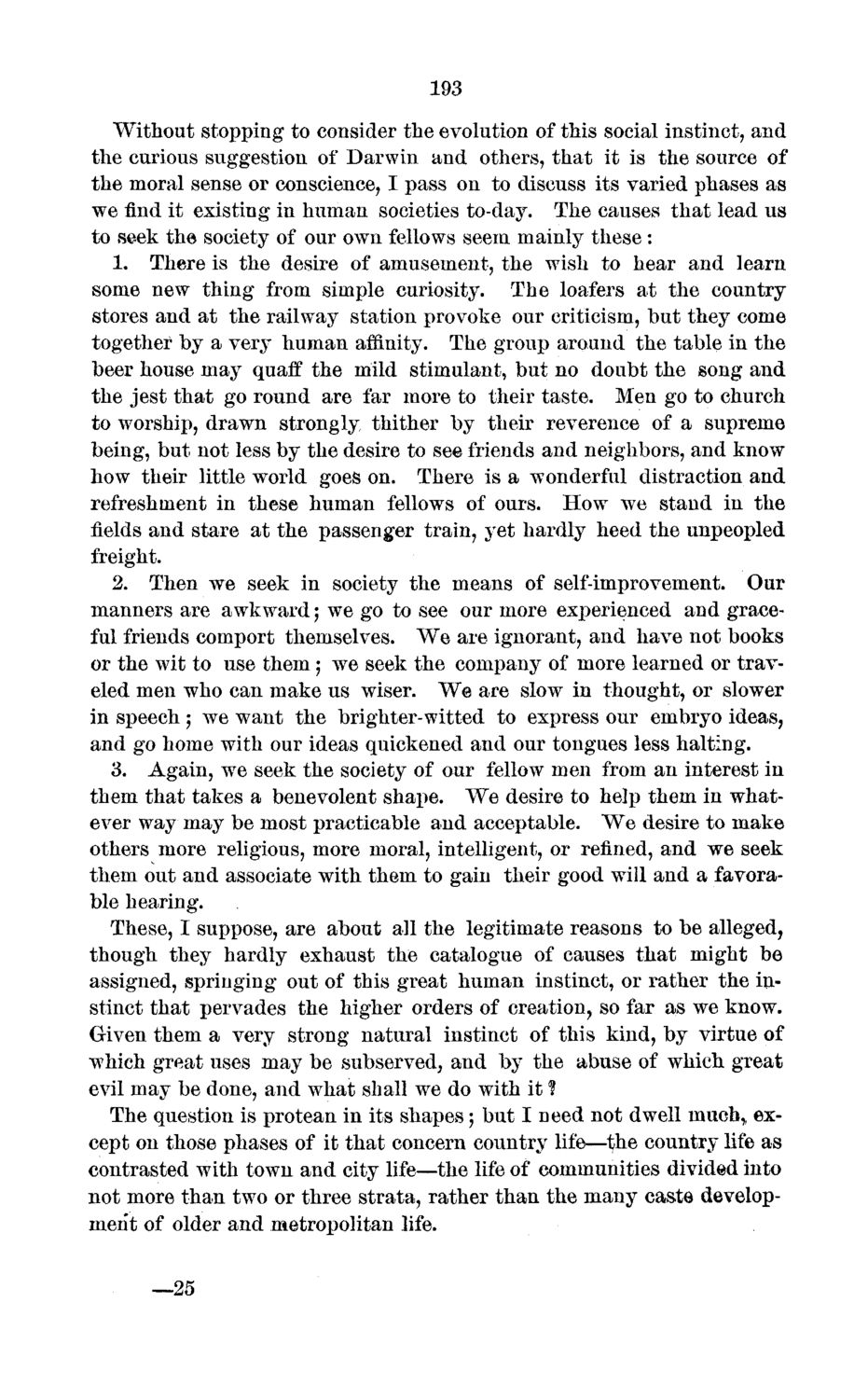| |
| |
Caption: Board of Trustees Minutes - 1873
This is a reduced-resolution page image for fast online browsing.

EXTRACTED TEXT FROM PAGE:
193 Without stopping to consider the evolution of this social instinct, and the curious suggestion of Darwin and others, that it is the source of the moral sense or conscience, I pass on to discuss its varied phases as we find it existing in human societies to-day. The causes that lead us to seek the society of our own fellows seem mainly these: 1. There is the desire of amusement, the wish to hear and learn some new thing from simple curiosity. The loafers at the country stores and at the railway station provoke our criticism, but they come together by a very human affinity. The group around the table in the beer house may quaff the mild stimulant, but no doubt the song and the jest that go round are far more to their taste. Men go to church to worship, drawn strongly thither by their reverence of a supreme being, but not less by the desire to see friends and neighbors, and know how their little world goes on. There is a wonderful distraction and refreshment in these human fellows of ours. How we stand in the fields and stare at the passenger train, yet hardly heed the unpeopled freight. 2. Then we seek in society the means of self-improvement. Our manners are awkward; we go to see our more experienced and graceful friends comport themselves. We are ignorant, and have not books or the wit to use them; we seek the company of more learned or traveled men who can make us wiser. We are slow in thought, or slower in speech $ we want the brighter-witted to express our embryo ideas, and go home with our ideas quickened and our tongues less halting. 3. Again, we seek the society of our fellow men from an interest in them that takes a benevolent shape. We desire to help them in whatever way may be most practicable and acceptable. We desire to make others more religious, more moral, intelligent, or refined, and we seek them out and associate with them to gain their good will and a favorable hearing. These, I suppose, are about all the legitimate reasons to be alleged, though they hardly exhaust the catalogue of causes that might be assigned, springing out of this great human instinct, or rather the instinct that pervades the higher orders of creation, so far as we know. Given them a very strong natural instinct of this kind, by virtue of which great uses may be subserved, and by the abuse of which great evil may be done, and what shall we do with it ? The question is protean in its shapes; but I need not dwell mucb> except on those phases of it that concern country life—the country life as contrasted with town and city life—the life of communities divided into not more than two or three strata, rather than the many caste development of older and metropolitan life. —25
| |